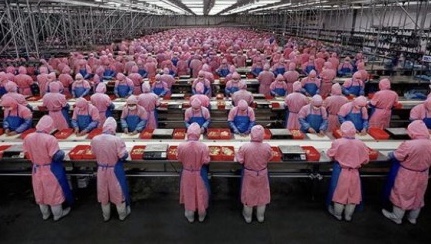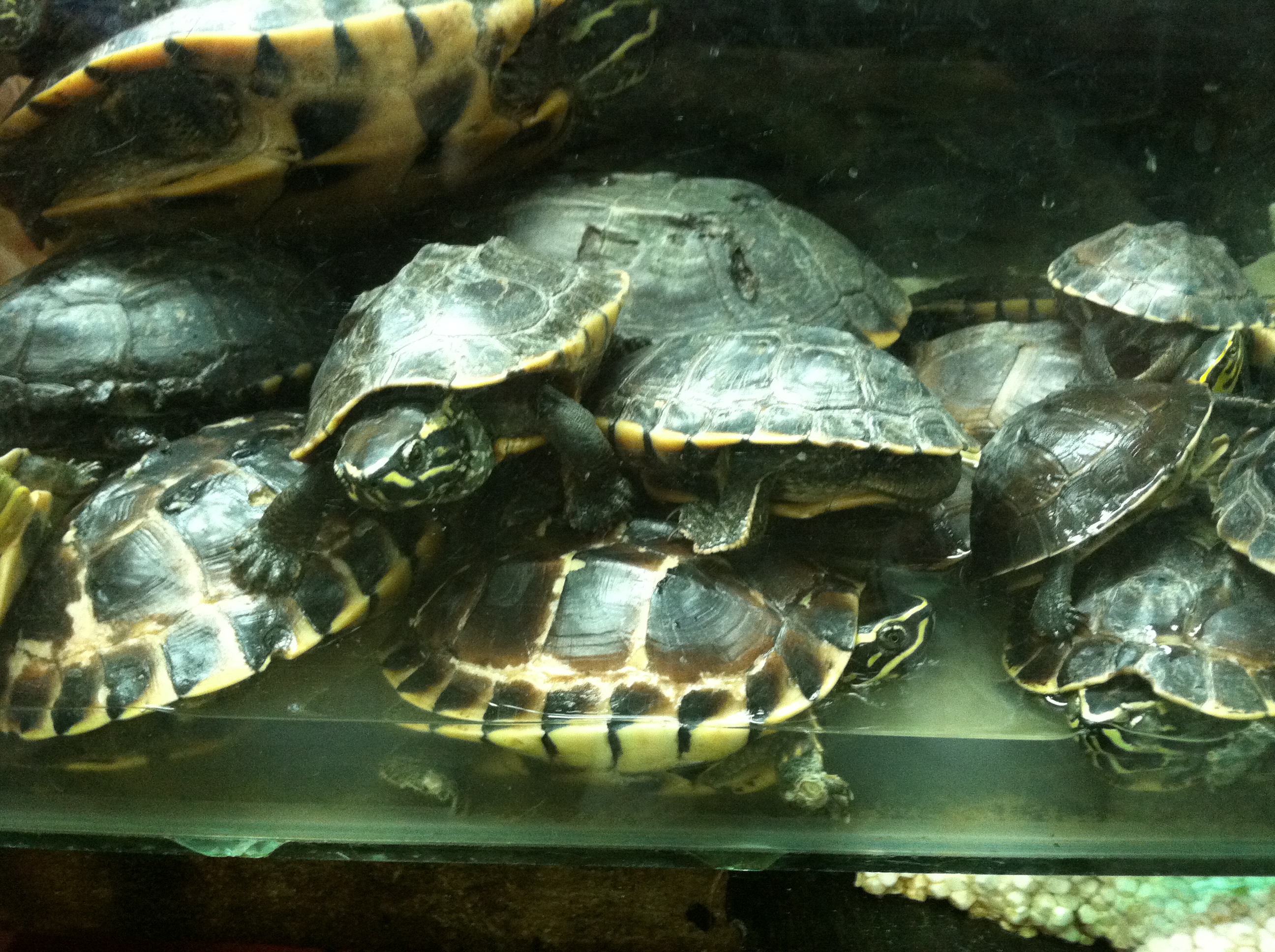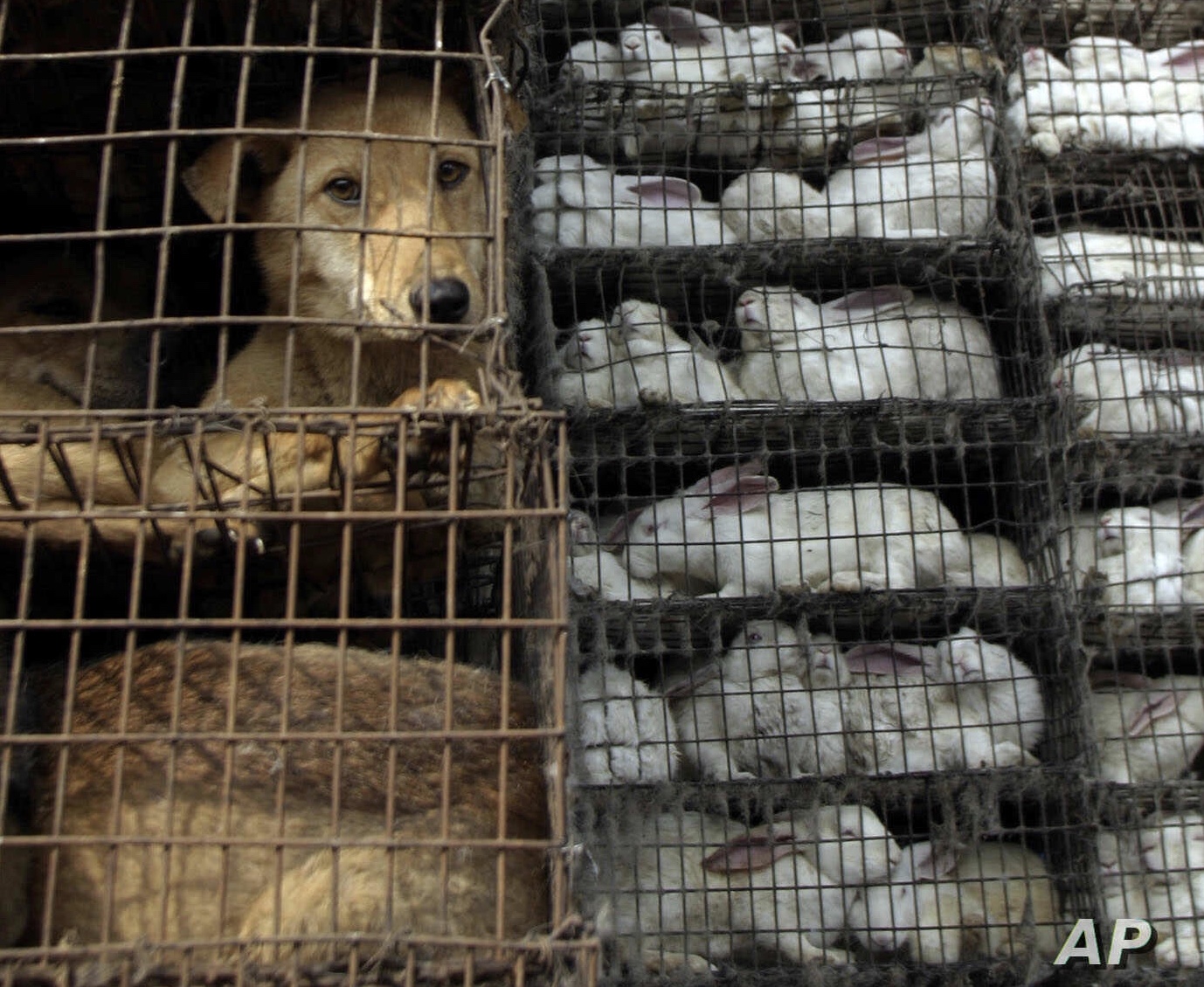Why food chain will remain broken
When the Smithfield meat packing plant went down last week, shutting an amazing 5% of pork production, and we were told there would be no disruptions in our food supply chain, I said to myself, “that ain’t kosher.”

Now we are told there will be a disruption in what we used to call food production and who could not have seen that coming? Supermarkets are still short of toilet paper(!) and Lysol wipes, more than a month into lockdown.
Anyone could have seen the interruption in production coming because after the mass infection at Smithfield, outbreaks at other food processing plants — beef, pork, poultry, eggs — were as inevitable as they were at nursing homes.
President Donald J. Trump on Tuesday signed an executive order under the Defense Production Act to compel meat processing plants to remain open, saying the government will provide additional protective gear for employees as well as guidance.
Sounds good, but here’s the problem: The government can’t wave a wand to reopen the closed plants if a large number of workers have contracted the COVID-19 virus and must quarantine for 14 days.
I don’t think we will see Soviet-style bare shelves, but you ought to think about plant-based substitutes for your meat. Right now Burger King’s “impossible burger” is looking good.
Switching to chicken might not work. Remember a while back when Popeye’s impossibly ran out of its crazy popular fried chicken sandwiches? How could that happen? That’s like McDonald’s running out of fries.
In checking the internet, I have yet to see any catastrophic reports from a legitimate source that Americans are going to starve, but further disruptions are inevitable. Brace yourself.
Let’s take a step back to where we believe all of this began — in the so-called Wuhan “wet market.”
These are found in many parts of Asia and are disgusting to Western eyes.

In cages, bowls and urns, live animals are sold for food. You can find fowl, fawns, rabbits, frogs, bats and even dogs that will be slaughtered while you wait. For most Americans, it is revolting.

But most Americans don’t think about the food they eat, and how it got to their plate.
Because of breakdowns in the supply chain, and because of lack of demand due to closed restaurants, some farmers are plowing under produce they can’t get to market, they are dumping milk, while others are mourning what some call the “depopulation” of their hogs, which others call euthanasia — the killing of perhaps millions to save the cost of feeding them to keep them alive.
We are not smart enough to get the excess to food pantries? Apparently not.
I’ve seen interviews with farmers who practically sob when talking about having to put their pigs down. Why?
What did they think happened when they got shipped off to market? The pigs wind up dead, whether on the farm or in the slaughterhouse. Maybe the farmers mourn the waste, because it is the hogs' destiny to be food.
Matter of fact, farm euthansia might be less painful than what happens in the slaughterhouse.
Even before they get to the slaughterhouse, they have lives of unmitigated misery. The mental picture you may have of Farmer Gray raising his hogs in a barnyard is a fantasy.
What is reality? Hogs jammed into sheds in factory farms where they never feel the warmth of the sun on their backs, often pinned in narrow cages that deny them any kind of natural activity.
It is cheaper to treat them as products, rather than as sentient mammals who can feel physical pain and emotional distress. You know, like us.
Food processing plants are as mean as anything you can imagine -- rows of workers, standing shoulder to shoulder on assembly lines, wearing face shields, rubber aprons, and often rubber boots to protect them.
The horrors of factory farming and the brutality of slaughterhouses is a subject for another day.
For today, I’ll just say we may have to kill animals for our table, but that should be as painless as humanely possible.



